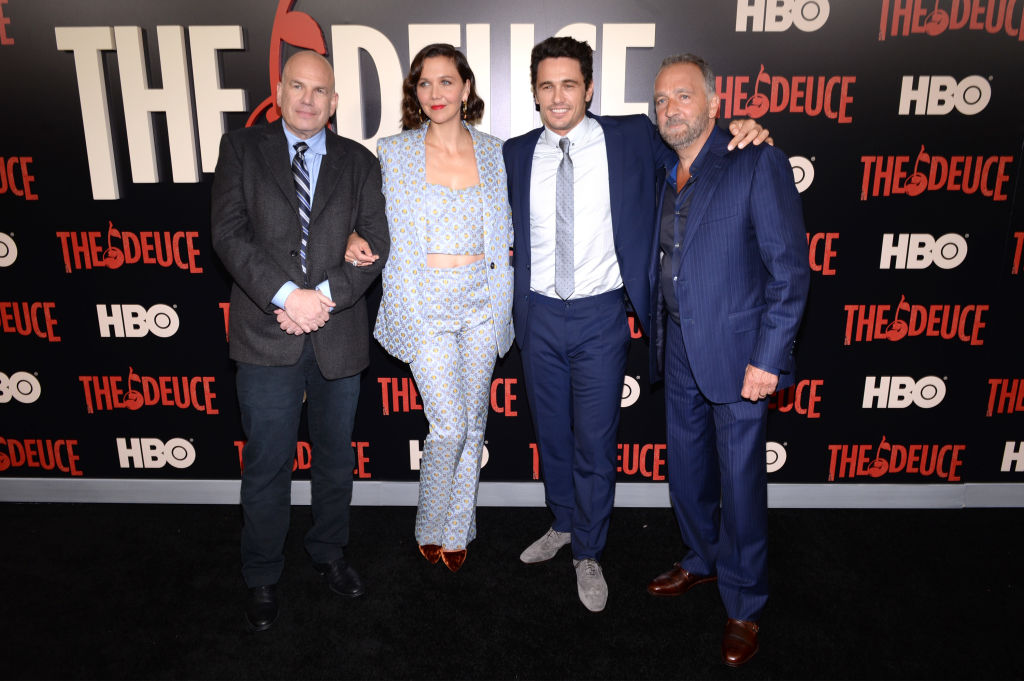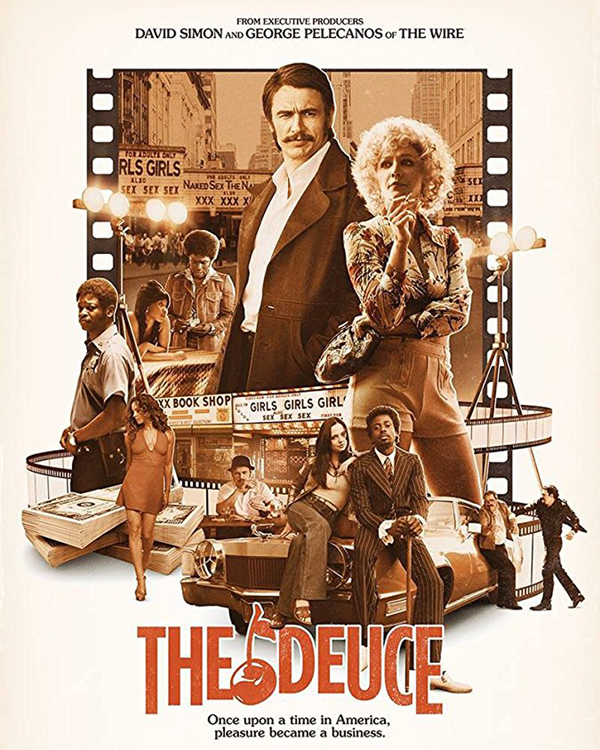
- Television
David Simon on ‘The Deuce’
David Simon and his writing partner George Pelecanos hesitated when they were asked to write a show about the gritty porn industry in 1970s New York. They did not want to make a show just about pornography but rather the whole culture behind it and the economic structures that made it into a billion dollar industry.
David Simon is a former police reporter from Baltimore and he did not want to create a show that just exploited all the currencies that work in television such as gangsters, pimps, violence, sex, and nudity. He is much more concerned with making a social commentary rather than pleasing viewers with entertainment.
“Right!” says Simon, who is eager to avoid sensationalism. “We didn’t really pick it up because it had archetypes that seemed to sell. The joke that I invariably tell is: ‘Don’t worry – we will mess it up. Yes, we have all of these fundamental advantages and anybody who wasn’t interested in the things we are would figure out a way to make this into some sort of a hit. But we will mess it up.’”
The show is named after the nickname that the seedy stretch of 42nd Street between 7th and 8th avenues in Manhattan got in the 1970s, when it was a mecca for pimps and prostitutes and paved the way from prostitution to legalizing porn. It was an industry that profited on misogyny – where most women did not profit – and the fact that the current climate in the US is rather misogynistic was part of David Simon’s motivation to create this show. “Yes, of course,” says Simon. “At the time we were in the wake of an election that showed us just how much ugly there is in American life when it comes to misogyny. And not only that the women that I know that are in the public sphere and engaged in any kind of discourse of ideas, what comes over the transom in America to those women in the form of emails and Twitter and letters and public commentary, is some of the crudest and most dysfunctional performances on the part of men that you could conjure.”

Maggie Gyllenhaal and James Franco in a scene from the HBO series ‘The Deuce’
HBO
The porn industry helped get a few female prostitutes off the dangerous streets, but they found their way into a business where they were objectified, and which in Simon’s mind was a setback for feminism and gender equality. “You can’t tell me that a half century of legalized pornography hasn’t informed in a vile way, the way men feel (…) they can address women”. Simon points out that this was the secondary theme that attracted him to The Deuce apart from the capitalistic forces behind the sex business. And he made sure that there were many female consultants on the project. “If you are cleaning up the misogyny that is inherent but you are engaged basically in objectifying women, then you are just playing the game. I don’t think we are cleaning up the misogyny,” says Simon.
It was very important for Maggie Gyllenhaal, who plays the lead in the show, to have an input on her character and that she was not just the fantasy archetype prostitute. She represents an independent prostitute, Eileen “Candy” Merrell, who does not have a pimp to profit from her. When she becomes a porn actress, she herself is in control of her career. This was significant for Gyllenhaal, who is also a producer on the show.
“We had notes from her,” says Simon about his collaboration with the lead actress of The Deuce. “She got the scripts in advance and we discussed the scripts in advance. And then we sent cuts to her and particular her scenes and would comment on anything where she felt like we missed something or there was an opportunity that we missed or that we were depicting something that we might want to think twice about and we took notes from her then.”
“Candy” is portrayed as a businesswoman with an entrepreneurial mindset. She sees possibilities in the porn business and goes behind the scenes to be part of the creation process. “We also had long-term discussions on what the arc was and why we were doing the show and those were as important as anything. She is, in fact, a consulting producer as well as an actor on it, and we took that seriously. We didn’t just hand her the title. She said: ‘If I do this role I am going to go for it and if I go for it, it better be for the right reasons.’ And I understood that right away. “

